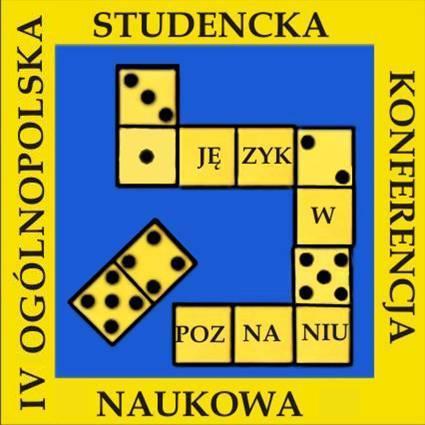Abstrakty - IV edycja

Prezentujemy listę referentów i tytułów wystąpień wraz ze streszczeniami i wstępną bibliografią. Zapraszamy do lektury!
Przypominamy, że język, w którym podany jest tytuł, jest równoznaczny z językiem całego wystąpienia.
Magdalena Nowak (Poznań)
Language as a discursive construct: Strategic representations of Scots for the purposes of Scotland’s 2011 Census
Last year, for the first time in history, a direct question about Scots (a West Germanic regional language variety used in the Lowlands of Scotland) was included in the 2011 National Census, giving the respondents a possibility to mark whether they could understand, speak and/or write Scots. As simple as it may sound, the very decision to include such a question into the census questionnaire, as well as its precise formulation, were subject to much consultation and ancillary debate, requiring conscious efforts on the part of Scotland’s policy makers to raise awareness of what Scots is, thus entailing overt and centralised efforts to define the language variety.
Taking as the point of departure the governmental actions accompanying the inclusion of Question 16 into Scotland’s National Census (specifically construction of the Aye Can website), this talk is aimed at investigating and presenting the strategies and practices of constructing the image of Scots in these centrally supervised representations.
Selected discursive strategies employed on the Aye Can website will be identified and critically analysed in the light of Scots’s socio-political and historical context. The theory and method of analysis will be based primarily on the discourse-historical approach to critical discourse analysis (cf. Reisigl and Wodak 2001).
1. Aitken, Adam Jack. 1984. “Scots and English in Scotland”, Language in the British Isles. Cambridge; New York: Cambridge University Press, 517-532.
2. Corbett, John. 2003. “Language Planning and Modern Scots”, The Edinburgh Companion to Scots. Edinburgh: Edinburgh University Press, 251-272.
3. Corbett, John, J. Derrick McClure and Jane Stuart-Smith. 2003. “A Brief History of Scots”, The Edinburgh Companion to Scots. Edinburgh: Edinburgh University Press, 1-16.
4. De Cillia, Rudolf, Martin Reisigl and Ruth Wodak. 1999. “The discursive construction of national identities”, Discourse and Society 10, 2: 149-173.
5. Glen, Carol M. 2010. “The Politics of Language Policy in Scotland”. The Annual of Language & Politics and Politics of Identity Vol. 4: 45-58.
6. Makoni, Sinfree and Alastair Pennycook. 2007. “Disinventing and reconstituting languages”, in: Makoni, Sinfree and Alastair Pennycook (eds.), Disinventing and reconstituting languages. Clevedon: Multilingual Matters, 1-41.
7. Pennycook, Alastair. 2006. “Postmodernism in language policy”, in: Ricento, Thomas (ed.), An introduction to language policy: theory and method. Oxford: Blackwell Publishing, 60-76.
8. Reisigl, Martin and Ruth Wodak. 2001. “The discourse-historical analysis of the rhetoric of racism and anti-Semitism”, in Martin Reisigl and Ruth Wodak, Discourse and discrimination. London: Routledge, 31-90.
9. Shohamy, Elana. 2006. Language Policy: Hidden agendas and new approaches. London: Routledge.
10. Tollefson, James W. 2006. “Critical theory in language policy”, in: Ricento, Thomas (ed.), An introduction to language policy: theory and method. Oxford: Blackwell Publishing, 42-59.